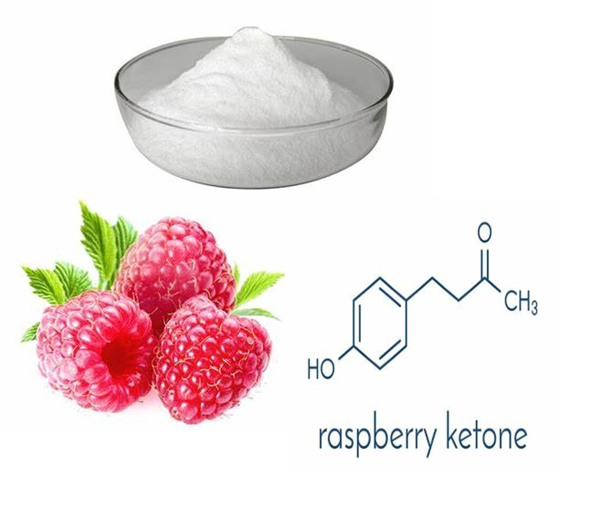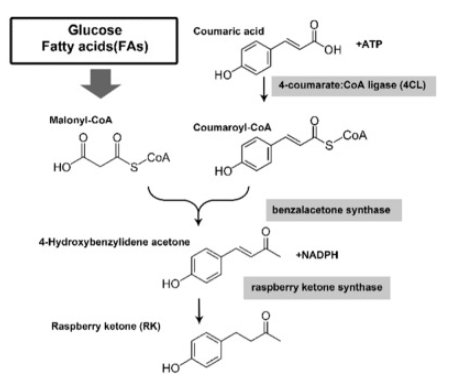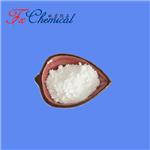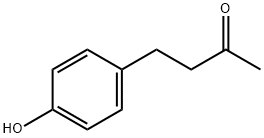Raspberry Ketone: Uses, Synthesis, Supplements and Benefits, Side Effects
Sep 14,2024
What is Raspberry Ketone?
Raspberry Ketone, chemical formula 4-(4-hydroxyphenyl)-2-butanone, is a natural plant phenolic compound and the source of the characteristic aroma of raspberry fruits. Raspberry Ketone, found naturally in fruits such as red raspberries, blackberries and cranberries, is relatively safe for humans and is therefore widely used as a flavoring ingredient in food, drinks and perfumes.

Uses of Raspberry Ketone
Raspberry Ketone has a sweet, fruity odour similar to raspberry preserves, so it is widely used in perfumes, cosmetics and as a flavouring agent in food and beverages. It also has antioxidant, anti-obesity, anti-inflammatory, anti-androgenic activity, cardiac, hepatic and gastroprotective properties, and thus it is also used as a dietary supplement or functional health food.
Synthesis of Raspberry Ketone
Raspberry Ketone can be prepared by chemical synthesis or microbial strains.
Chemical synthesis: In the presence of acetic acid medium and catalyst alkyl phenols (e.g., p-methylphenol, 2,6 dibutylphenol, australol), hydrobromic acid is added dropwise to anisole acetone as the initial raw material at 103-108 degrees Celsius for the alkylphenol reaction, and the reactants are extracted with ethyl acetate, and the finished product is obtained by distillation at more than 99.5% raspberry ketone. By adding a catalyst, further polymerisation between the resulting raspberry ketone and the anisyl acetone can also be prevented, thereby increasing the yield and quality of the product.
Biosynthesis: metabolically engineered E. coli strains for the production of raspberry ketones using fatty acids as feedstock. The production of raspberry ketones from fatty acid feedstocks was achieved by introducing 4-coumarate-CoA ligase (4CL), phenylacetone synthase (BAS), and raspberry ketone reductase (RZS) into E. coli strains CR1-CR4, followed by the introduction of a raspberry ketone biosynthesis module into the fatty acid utilisation chassis FA09, and then, by breeding strain CR5. However, the production of raspberry ketone was still limited by low biomass, which prevented the whole-cell biotransformation process. The optimised promoter Pfrd3 was successfully used for the efficient expression of key enzymes of the raspberry ketone biosynthesis module during fatty acid biotransformation. The final engineered strain CR8 was able to produce raspberry ketone repeatedly and efficiently using the fatty acid feedstock bioconversion strategy and was able to produce raspberry ketone at a concentration of 180.94 mg/L from soybean oil in a 1-litre fermentation process.

Supplements and Benefits
Raspberry Ketone (RK) has been shown to exert antioxidant effects by increasing total antioxidant capacity (TAC), upregulating antioxidant enzymes such as superoxide dismutase (SOD) and catalase (CAT), and ameliorating lipid peroxidation. Animal studies have also shown that RK can control lipolysis and fatty acid β-oxidation by inducing the expression of enzymes and inhibit the expression of lipogenic factor genes, which has a preventive effect on high-fat diet-induced obesity in rats. Therefore, it is believed that Raspberry Ketone supplements may help burn fat and aid in weight loss. In addition, RK may also have anti-aging effects. However, these are unproven in clinical terms. In the absence of research into the effects of consuming high levels of Raspberry Ketone, consumers should be wary of unsubstantiated claims and be aware of potential health hazards.
Side Effects
The side effects of Raspberry Ketone are not known and no serious adverse reactions have been reported. However, since it is chemically related to a stimulant called Synephrine. As a result, raspberry ketone may cause feelings of nervousness, increased blood pressure, or a rapid heartbeat. In one report, people taking raspberry ketone described feelings of trembling and rapid heartbeat (palpitations).
References:
[1] LARS MILKE; Jan M; Mario Mutz. Synthesis of the character impact compound raspberry ketone and additional flavoring phenylbutanoids of biotechnological interest with Corynebacterium glutamicum.[J]. Microbial Cell Factories, 2020. DOI:10.1186/s12934-020-01351-y.
[2] SUNG HO LIM; Chang I C. Potentials of Raspberry Ketone as a Natural Antioxidant.[J]. Antioxidants, 2021. DOI:10.3390/antiox10030482.
[3] A. ALKALADI. Raspberry ketone attenuates high-fat diet-induced obesity by improving metabolic homeostasis in rats[J]. Asian Pacific journal of tropical biomedicine, 2020. DOI:10.4103/2221-1691.273090.
[4] CHEN CHANG. Efficient bioconversion of raspberry ketone in Escherichia coli using fatty acids feedstocks.[J]. Microbial Cell Factories, 2021. DOI:10.1186/s12934-021-01551-0.
[5] LEE J. Further research on the biological activities and the safety of raspberry ketone is needed[J]. NFS Journal, 2016. DOI:10.1016/j.nfs.2015.12.001.
- Related articles
- Related Qustion
- Application and Safety concerns of Raspberry ketone Oct 29, 2019
Raspberry ketone is a chemical from red raspberries that is thought to help for weight loss. Some research in animals or in test tubes shows that raspberry ketone might increase some measures of metabolism. It might also affect a hormone in
Isavuconazole has shown promising clinical efficacy and favorable safety profiles in treating various life-threatening fungal infections.....
Sep 14,2024APIRaspberry Ketone
5471-51-2You may like
- What are the Biological activity and Toxicity of caffeic acid
Sep 14, 2024
- What is the role of coumarins in blood clotting?
Aug 28, 2024
- Too much vitamin C: Is it harmful?
Aug 28, 2024
Raspberry Ketone manufacturers
- Raspberry Ketone
-

- $0.00 / 1KG
- 2024-09-14
- CAS:5471-51-2
- Min. Order: 1KG
- Purity: ≥98% HPLC
- Supply Ability: 1000KG
- Raspberry Ketone
-

- $0.00 / 1kg
- 2024-09-14
- CAS:5471-51-2
- Min. Order: 1kg
- Purity: 99%min
- Supply Ability: 1000kg
- Raspberry Ketone
-

- $0.00 / 1kg
- 2024-09-14
- CAS:5471-51-2
- Min. Order: 1kg
- Purity: 99%
- Supply Ability: 1t




